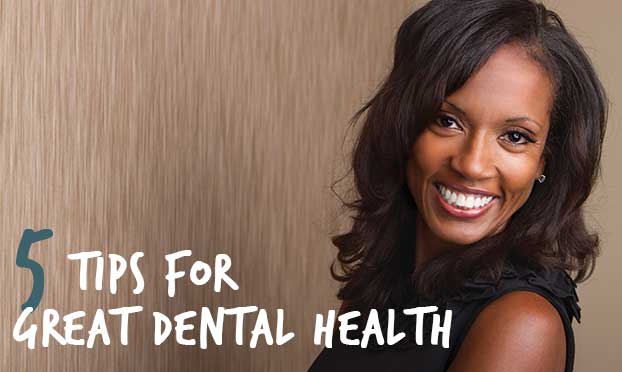It seems as if a lot of us tend to think that our teeth will always be there, but having healthy gums is much more than just brushing twice a day to get white, cavity free teeth. Proper dental care is essential to a healthy body, no matter what your age. Here are 5 dental health tips that you might not have thought of that can help keep your pearly whites healthy and strong.
1. Don’t over brush
Yes, you read that right, there is actually such a things as over brushing. It’s recommended that you brush twice a day, or once after meals, and this is for good reason. Over brushing can wear down the enamel on the teeth as well as damage and push back the gums, exposing the sensitive root area. When is comes to brushing, moderation is key.
2. Hot water brushing
Just as over brushing can cause issues, so can brushing too hard. Try brushing your teeth with hot water. Hot water can make the bristles of your toothbrush less stiff, which is not only easier on your gums, but can help clean your brush before you use it! Of course you want some rigidity with your bristles, but not too much.
Something else to consider is drying your brush after using it. Bacteria love wet toothbrushes, so drying them right after you are finished with them can help keep your toothbrush, and your mouth, extra clean.
3. Don’t believe everything you hear
Despite what you’ve might have heard, chewing gum is not a replacement for brushing and oral hygiene. There are many brands of gum out there, some that market themselves as good for your teeth. Although some gums can help freshen your breath, and maybe even with whiten your teeth, more often than not, lots of gum products can be detrimental to your teeth. The American Dental Association can help you distinguish the gums that are not as bad for you. You can find the list here.
4. Embrace your mouthwash
One of the most asked questions regarding mouthwash is: do you use your mouthwash before or after brushing? There are arguments for either way. First off, the important thing is that you don’t consider your mouthwash as a replacement for brushing, although it can help disinfect and loosen plaque. Because of this, some say that it could be beneficial to use your mouth wash before your brush your teeth.
The other side of the argument states that using mouthwash after you brush helps to thoroughly rinse and disinfect the mouth after the plaque and particles have been cleared by brushing. Using the wash after brushing may also leave residual mouthwash in your mouth, giving it longer time to work.
The bottom line is that using mouthwash either before or after can help support better oral hygiene!
5. Tongue scrapers
Tongue scraping can help remove the bacteria and food products that tend to remain on your tongue causing bacteria build-up. Often times this type of bacteria is what causes bad breath. Scraping your tongue is easy, the scrapers are inexpensive, and the practice could help your oral health in a big way!
Now that you have a few new tools to help you get your oral health on track it’s simply up to you to put them to use! If you have any additional questions feel free to call our Charlotte, NC dental office!


I appreciate your comment about brushing with hot water. I have very sensitive gums, so I always use the softest toothbrush. Brushing with hot water sounds like something I should do to keep my gums safe. Thanks for the helpful tips! I am going to a dentist next week to check on my teeth too.
I never realized that I could brush my teeth too much. I definitely do not want to brush the enamel off of my teeth. I know this could cause more problems in the future. I will definitely have to take your advice that moderation is key.
Good tip to keep healthier teeth for children.
http://www.argylestreetfamilydentist.com.au/
Thanks so much for sharing this advice on keeping up with your dental health! I had no idea that using a tongue scraper could actually be good for your oral health! Since so many different types of bacteria are in our mouths all the time, you’d think that removing some on your tongue wouldn’t make much a difference. However, if it can help prevent build-up, then I’ll try it! We’ll see if it gets rid of bad breath, too.
It’s weird to think that over brushing can be bad for you. I brushed my teeth for 10 minutes once to see what it would be like, and my teeth felt really weird after. I never did it again. I’ve actually had to start brushing less vigorous because my gums were starting to recede. Their good now after I calmed it down. Great info, thanks!
I’m one of those people who likes to use mouthwash after brushing. I feel like it can get to more places and works longer that way, like you suggest. However, it is good to know that as long as I am brushing regularly I shouldn’t have to worry too much about when I use my mouthwash. Up till now, I thought that I should always use it around brushing my teeth.